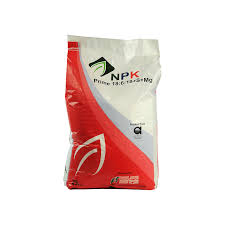
Kas . 25, 2024 22:01 Back to list
Organic Fertilizer Solutions for Optimizing Hydroponic Plant Growth and Yields
Understanding Organic Fertilizers for Hydroponics
Hydroponics is increasingly becoming a popular method of growing plants without soil, utilizing nutrient-rich water instead. One of the most important aspects of successful hydroponic growth is the right fertilization, which brings us to the topic of organic fertilizers. This article will explore the benefits, types, and applications of organic fertilizers specifically designed for hydroponic systems.
The Importance of Fertilization in Hydroponics
In traditional soil gardening, plants benefit from the naturally occurring nutrients found in the earth. However, in hydroponics, where soil is absent, plants are entirely reliant on a well-balanced nutrient solution. Using an organic approach to fertilization can enhance plant growth, improve flavor, and lead to healthier crops. Organic fertilizers not only provide essential nutrients but also enhance the microbial activity in the system, which can contribute positively to plant health.
Benefits of Organic Fertilizers
1. Nutrient-Rich Composition Organic fertilizers are generally rich in macro and micronutrients that are essential for plant growth. They typically contain nitrogen (N), phosphorus (P), potassium (K), calcium, magnesium, and trace elements in a form that is readily absorbable by hydroponic plants.
2. Environmental Sustainability Organic fertilizers are often made from natural ingredients like compost, fish emulsion, and seaweed, making them a more sustainable option. This minimizes the carbon footprint associated with chemical fertilizers, thus promoting a healthier environment.
3. Improved Soil Structure Although hydroponics does not use soil, organic fertilizers help maintain a healthy microbial community in the nutrient solution, which can support healthier root systems and promote nutrient uptake.
4. Enhanced Flavor and Quality Many hydroponic growers report that crops fertilized with organic nutrients produce fruits and vegetables with superior flavor and quality compared to those grown with synthetic fertilizers.
Types of Organic Fertilizers Suitable for Hydroponics
1. Fish Emulsion This is a liquid fertilizer made from fish waste, offering a high nitrogen content that is beneficial for leafy green plants. Fish emulsion can be easily diluted in water, making it a convenient choice for hydroponic systems.
organic fertilizer for hydroponics

2. Seaweed Extract Seaweed acts as a natural source of growth hormones and micronutrients. Its application can promote root development and enhance plants' resistance to environmental stress.
3. Compost Teas Concentrated solutions made by steeping compost in water, compost teas are rich in beneficial microorganisms and nutrients. They can improve nutrient uptake and promote plant growth when used in hydroponic setups.
4. Bone Meal and Blood Meal While primarily used in soil gardening, these organic options can sometimes be utilized in hydroponic systems in small quantities to provide phosphorus and nitrogen, respectively.
How to Use Organic Fertilizers in Hydroponics
The application of organic fertilizers in hydroponics requires careful consideration. The nutrient solutions need to be well-balanced in terms of pH and electrical conductivity (EC). Here are some steps to effectively use organic fertilizers in hydroponic systems
1. Understand Nutrient Needs Different plants have varying nutrient requirements. Research the needs of the specific crops being grown to determine the appropriate types and amounts of organic fertilizers needed.
2. Start with Dilution Organic fertilizers are usually concentrated. It's essential to follow guidelines for dilution to prevent over-fertilization, which can damage plants.
3. Regular Monitoring Keep a close eye on the pH and EC of the nutrient solution. Organic fertilizers can sometimes cause fluctuations, so it’s crucial to monitor and manage these parameters regularly.
4. Experiment and Adjust Every hydroponic system is unique. Be prepared to adjust your fertilization strategy based on the observed response of the plants.
Conclusion
Using organic fertilizers in hydroponics offers an innovative pathway to sustainable agriculture while ensuring bountiful harvests. Though they may require a bit more effort in terms of monitoring and adjustment compared to synthetic options, the benefits - both for plant health and environmental impact - are significant. As more growers aim for eco-friendly practices, the inclusion of organic fertilizers is poised to play a vital role in the future of hydroponic cultivation. Whether you are a novice or an experienced hydroponic gardener, exploring the world of organic fertilizers can lead to healthier plants and delicious produce.
-
Premium 8 12 16 Fertilizer – High-Efficiency Compound & Granular NPK Supplier
NewsJun.10,2025
-
High Quality Agricultural Grade NPK Fertilizer Manufacturer & Supplier Reliable Factory Price
NewsJun.10,2025
-
Organic Fertilizer for Corn Boost Yield Sustainably
NewsJun.10,2025
-
Organic Fertilizer for New Plants Natural Growth Boost & Eco Nutrients
NewsJun.10,2025
-
Optimized Hydroponic NPK Fertilizer – Fast Growth & Nutrients
NewsJun.09,2025
-
Top-Rated NPK Fertilizer for Fruit Trees - Boost Growth & Yield
NewsJun.09,2025
